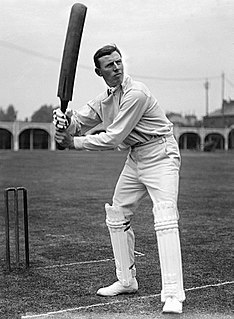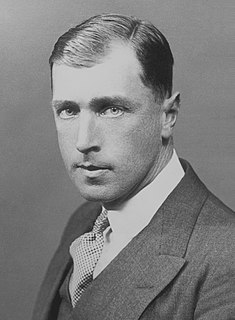 W
WArthur William Carr was an English cricketer. He played for the Nottinghamshire County Cricket Club and the English cricket team, captaining both sides.
 W
WField Marshal Sir Archibald James Halkett Cassels, was a senior British Army officer who served as Chief of the General Staff (CGS), the professional head of the British Army, from 1965 to 1968. As a young man he was a first-class cricket player, initially playing in India for the Europeans against the Hindus in the Lahore Tournament and going on to play for a Punjab Governor's XI against Northern India team and for a Viceroy's XI against the Roshanara Club. He later played for the British Army cricket team against the RAF at The Oval and then played for the Egyptian national side against HM Martineau's XI in Alexandria.
 W
WHarold Lindsay Vernon Day was an English rugby union footballer who played wing for Leicester Tigers and England.
 W
WLieutenant General Sir Ian Henry Freeland was a senior British Army officer, who served with distinction during World War II and most notably served as General Officer Commanding (GOC) and Director of Operations in security matters in Northern Ireland in the aftermath of rioting in 1969, and the beginning of the Troubles.
 W
WNigel Esme Haig was a first-class cricketer who played for Middlesex and England.
 W
WGeneral Sir Reginald Hackett Hewetson, was a senior British Army officer and a former Adjutant-General to the Forces.
 W
WArthur Oswald James Hope, 2nd Baron Rankeillour was a British politician, soldier and administrator. He was a Conservative and served as Member of Parliament for Nuneaton from 1924 to 1929 and for Birmingham Aston from 1931 to 1939, after which he was Governor of the Madras Presidency of British India from 1940 to 1946.
 W
WPeter Randall Johnson was a cricketer who played for Cambridge University, Somerset and several amateur sides in a long first-class cricket career that stretched from 1900 to 1927. During his career, he appears to have been known, somewhat formally, as "P. R. Johnson"; modern websites refer to him as "Randall Johnson". Somerset colleague Jack MacBryan, who didn't like him, called him "Peter Johnson".
 W
WNeville Alexander Knox was an English fast bowler of the late 1900s and effectively the successor to Tom Richardson and William Lockwood in the Surrey team. Because of his profession as a singer, Knox's cricket career was short, but he was undoubtedly the fastest bowler of his time and one of the fastest bowlers ever to play for England – probably capable of speeds over 150 km/h (93 mph).
 W
WLieutenant-Colonel Harry Samuel Lewis Barclay was an Australian-born army officer and sportsman who played first-class cricket and was a quarter-finalist at the 1925 Wimbledon Championships.
 W
WGeneral Sir Henry Charles Loyd,, nicknamed "Budget Loyd", was a senior British Army officer who fought in both the world wars, most notably during the Second World War as General Officer Commanding (GOC) of the 2nd Infantry Division during the Battle of France in May 1940.
 W
WColonel Rowan Scrope Rait Kerr was an Irish-born cricketer and sporting administrator.
 W
WLieutenant Colonel Douglas Charles Robinson was British army officer and a first-class cricketer who captained Gloucestershire. He also played for Essex, Marylebone Cricket Club and for the amateur Gentlemen and England XI teams.
 W
WFrederick Roland Studdert Shaw was an Irish first-class cricketer and British Army officer.
 W
WLieutenant-Colonel Ronald Thomas "Rony" Stanyforth, was an Army officer and English amateur first-class cricketer, who played for Yorkshire County Cricket Club and England, captaining England in the four Test matches he played in.
 W
WLionel Hallam Tennyson, 3rd Baron Tennyson was known principally as a first-class cricketer who captained Hampshire and England. The grandson of the poet Alfred, Lord Tennyson and the son of the Governor-General of Australia, he succeeded his father to the title in 1928, having been known before that as "The Hon Lionel Tennyson". He should not be confused with his uncle, after whom he was named, who was also "The Hon Lionel Tennyson".
 W
WBrigadier Arthur Jervois Turner, was an English cricketer, rugby union player and British Army officer. A right-handed batsman, right-arm underarm medium pace bowler and occasional wicket-keeper, he played first-class cricket for various teams between 1897 and 1914, predominately for Essex. He also played for the Egypt national cricket team. His other sporting interests included Rugby Union, and he played for Blackheath F.C. and Kent at that sport.
 W
WColonel William Alexander Camac Wilkinson, was a highly-decorated British Army officer and English cricketer. Australian-born, he served with the British Army in both the First and Second World Wars. After the Second World War he spent some time in Graz, Austria, as Senior Military Government Officer in the occupation forces.